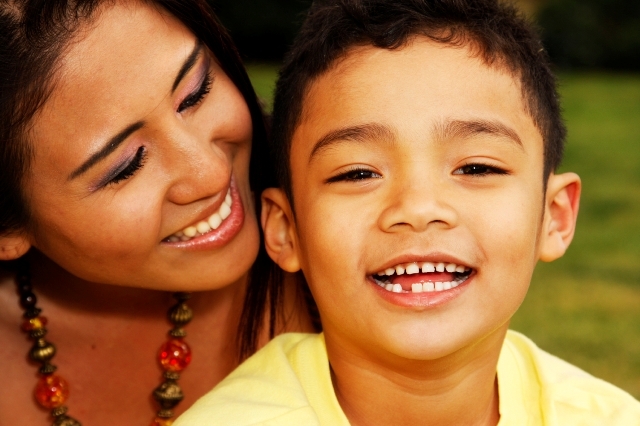Activities in 2022 (in Spanish and English)
EARLY DEVELOPMENTS:
ICDP developments began in 2001, with a series of seminars, meetings and conferences, that took place in Santo Angelo and Aguas de San Pedro.
The first ICDP project was carried out in Santo Angelo, by Afonso and Ignes Luft, both teachers, and directors of the CELUAN foundation, that ran a preschool, primary and secondary school. They were also working in two poor neighbourhoods, Centro Sul and San Carlos, developing programs for young people. Having noticed lack of motivation and lack of knowledge and confidence in the families, they decided to use the ICDP program to activate and inspire parents to improve their relationship with their children and the quality of family life in general. Groups of community mothers were trained as ICDP promoters and they reached 360 families by the end of 2003.
An additional feature of the project in 2003 was the training delivered to adolescents, who afterwards applied in practice the key principles of the ICDP programme in creative play activities with younger children.
EVALUATION:
A study was conducted to evaluate the impact of ICDP through one-to-one interviews, focus group interviews, as well through written questionnaires administered to facilitators and mothers. The study showed that:
1. Parents developed confidence in their ability to bring up children.
2. There was an increase in the parents’ ability to express positive emotions to their children.
3. Parents developed interest in their children and started to spend more time in dialogue and play with them.
4. Parents feel more motivated to do projects with others in their community. They started to participate in sawing, gardening, cooking and craft projects.
In 2004 a new project developed in Santo Angelo, sponsored by the Bernard van Leer Foundation and led by Alfonso Luft. The project trained 127 persons in 16 preschools, who held sensitization meetings with the children’s parents. It was completed in 2005, with 61 trainers and 226 facilitators, who put the ICDP programme into practice with 2717 caregivers and 4308 children. The evaluation conducted in focus group interviews with promoters and families showed very positive results.
2006: Negotiations were started for piloting the ICDP methodology in schools, in the municipalities of Florianopolis, Biguaçu, São José and Palhoça. The ICDP Manual was revised and updated.
During 2009, ICDP was implemented in 5 schools, sponsored by the Giruá municipality. The team of pedagogues developed competence in ICDP and became responsible for the training of all school staff. In addition, a group of community workers was trained who implemented the ICDP program with 200 families of the school children. ICDP proved to be a strategy capable of helping children who are underachieving due to lack of support from their home environments. The experience was so positive that it attracted interest from other municipalities to follow suit.
2010: In September, Eleazar Luft started new cooperation with IPREDE in Fortaleza by holding a workshop for members of their technical team. IPREDE was formed in 1986 and is working in the area of nutrition and childhood development. Their intention is to launch a program for their municipality using the ICDP methodology as an official part of their program.
2010 and up to the end of 2014: In 2009, upon the invitation by Guillermo Navas, then director of Save Children Brazil, ICDP became one of the partners in a multi-institutional project working in the semi-arid region of Pernambuco and Bahia states, in North East Brazil. It is sponsored mainly by the European Community.
The project is developing, implementing and evaluating new models for integrated services for early childhood development. These experiences will be later analysed, documented, published and shared in a variety of existing networks for child survival, education and protection. The project action targets three groups:
1. 52,400 Children under five from poor and excluded populations, and their caregivers;
2. Non-State Actors and Local Authorities in 36 municipalities in Pernambuco and Bahia states;
3. National, international -and European- networks and forums on early childhood development, education, child rights and child survival
The community groups are in process of receiving training from several partner organizations. The training covers three thematic areas: a) Care and Psychosocial Development in Early Childhood (ICDP); b) Health and Nutrition in Early Childhood (CNMP); c) Protection of Child Rights and Combating Domestic and Sexual Violence Against Children (CENDHEC).
A group of 22 professionals, including educators, psychologists and social workers from a local partner organization called ACARI, received training in ICDP by Nicoletta Armstrong. Subsequently a core group was selected to implement ICDP with families and children linked to local day centres, schools and preschools and to train professionals in charge of the program called Mãe Coruja. Mãe Coruja is a government initiative that provides health education, literacy classes and a variety of life skills to pregnant women.
By the end of 2012, ICDP training was given to over 500 professionals who became ICDP facilitators in 34 municipalities, reaching 20 000 families. The office of Save the Children/Abrinq office in Recife is in charge of organizing and coordinating the ICDP developments. The project is due to end in 2014.
In 2012, ICDP Brazil was formed by a team of professional, with Polyanna Magalhães as chair.
2013: EVALUATION
The ICDP project in Pernambuco was evaluated and the data were collected from 127 informants, including the facilitators, families and supervisors. The ICDP standard questionnaire was administered on line, there were focus groups and one to one interviews. ICDP received very good reception at every level and the overall results are very encouraging. It was particularly well received by the two indigenous groups, Truka and Quilombola. In November 2013, Polyanna Magalhães presented the results of the evaluation and is in the process of finalizing the evaluation report.

